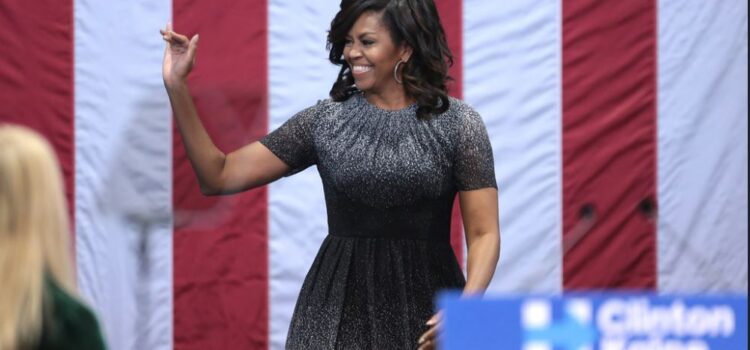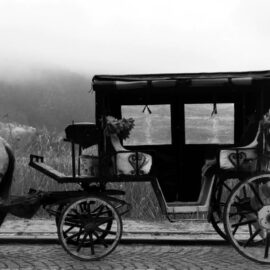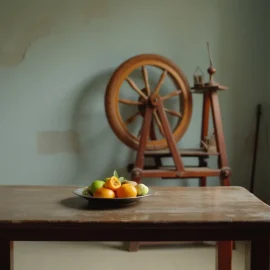

This article is an excerpt from the Shortform book guide to "Becoming" by Michelle Obama. Shortform has the world's best summaries and analyses of books you should be reading.
Like this article? Sign up for a free trial here .
Why did Michelle Obama decide to start her own campaign even though she despised politics? Did her campaign end up doing more harm than good?
In 2008, Michelle Obama decided to do what most presidential candidates’ spouses do and started her own campaign for Barack. Despite her disdain for politics, Michelle managed to connect with many voters on a personal level.
Continue reading to learn more about Michelle Obama’s campaign.
Michelle Joins the Campaign Fray
During Barack’s campaign, Michelle’s family’s life changed quickly and radically. Michelle remembers Barack as being constantly in motion, responding to the nonstop actions and reactions of the campaign. He was competing against Hillary Clinton, who was much better known than Obama, and eight other Democrats. As most presidential candidates’ spouses do, Michelle ran her own campaign to get Barack elected.
She hired Melissa Winter as her campaign manager (who later became Michelle’s chief of staff), and Katie McCormick Lelyveld as her communications director. Michelle’s only stipulation was that there would be no overnight travel—she wanted to be home every night for the girls.
Michelle scaled back her work at the hospital to part time and traveled a few days a week to Iowa, a priority state for any candidate hoping to win the Democratic nomination. The state was 90 percent white and mostly rural, so it seemed like a tough challenge for a Black candidate from Chicago.
Michelle’s Personal Campaign Message
Barack rarely campaigned alongside her because he had other places he needed to be, so Michelle had to come up with her own messages and strategies. Without fully understanding exactly what she was supposed to do or say, Michelle spoke to community groups and volunteers all over the state. She told her personal stories—about her family life, how she met Barack, what her schooling was like, and why she wasn’t a big fan of politics.
The people who listened to her, she says, were a lot like her family, only white. They were civic-minded blue-collar workers, college students, retirees, and stay-at-home mothers. When these people hugged her, she hugged them right back.
Michelle said that the most uncomfortable part of the Iowa campaign was when journalists would ask Michelle what it was like for an Ivy League-educated Black woman to speak to a room full of white, middle-class Iowans. She bristled at the question because it emphasized differences instead of similarities. She saw how these people were the same as she was: Some wanted to talk to her because they, too, had a family member with multiple sclerosis, or they, too, struggled to believe they were “good enough” to attend a great college or raise children while managing a career.
A Catalyst for Michelle’s Future Nutrition Campaign
In the midst of campaigning for Barack, a doctor informed Michelle that Malia’s body mass index was too high. This might put her in danger of obesity, high blood pressure, or other serious health issues later on in her life.
Michelle was shocked. She’d thought she had done everything right to care for her daughters, but she hadn’t realized they’d fallen into bad habits like eating fast food or getting too many takeout dinners. With Barack’s presidential campaign in full swing, Michelle had no time to prepare healthy meals, so she hired a professional chef, Sam Kass, who not only cooked for the girls, but also taught them about healthy eating and the perils of the food industry’s marketing campaigns. Michelle promised Kass that if Barack got elected, she would use her role as first lady to address the public health consequences of unhealthy eating.
Harsh Media Criticism
A few months later, Michelle took a leave of absence from her job because the campaign—and caring for her children in the midst of it—demanded all her time. She was getting a ton of media exposure, and although much of it was positive, some was discriminatory and hateful. The media often portrayed Michelle as an “angry Black woman,” a stereotype that she calls a “signal not to listen to what we’ve got to say.”
One New York Times columnist called her a “princess of South Chicago.” Another media personality called her “Obama’s Baby Mama.” Journalists rarely asked about her work or qualifications, but some news stories insinuated that her promotions at the hospital were due to Barack’s popularity.
Michelle struggled with her new role as a media celebrity and tried to not take the criticism personally, but combatting the mean-spirited comments was draining. She questioned whether her presence on the campaign trail was helping or hurting Barack. He insisted she was a great asset but said he understood her frustration—if she wanted to stop campaigning, she could.
Michelle decided to work with Barack’s communications staff to fine-tune her public demeanor and speech delivery. She came to understand that politics is as much performance art as anything else, and she needed to learn how to perfect her act. Barack’s staff taught her to smile more and show more of her softer, maternal side because that’s what America wanted to see.
Butte’s Fourth of July
Michelle learned to cherish the precious unrehearsed moments she was occasionally granted. She got one of those rare moments on the Fourth of July, when the Obamas and their Secret Service attaché flew to Butte, Montana. The citizens of Butte knew that it was Malia’s 10th birthday, and they held up signs congratulating her. Huge crowds came out for a Fourth of July picnic, and everyone sang “Happy Birthday” to Malia.
Michelle spent much of the day feeling guilty and inadequate as a parent because her family life had become so public. Because of their campaign responsibilities, she thought she had failed to give Malia a normal birthday at home with a party, friends, relatives, and presents. But at the end of the day, Malia surprised her by insisting this was “the best birthday ever.” In her 10-year-old mind, strangers helped her to celebrate her day, she’d spent the day outside at a picnic, and she ate birthday cake—and life couldn’t get any better.

———End of Preview———
Like what you just read? Read the rest of the world's best book summary and analysis of Michelle Obama's "Becoming" at Shortform .
Here's what you'll find in our full Becoming summary :
- How Michelle Obama went from the South Side of Chicago to the White House
- Why much of her success came from her being determined from a young age
- How Michelle Obama continues to push herself and discover new opportunities






